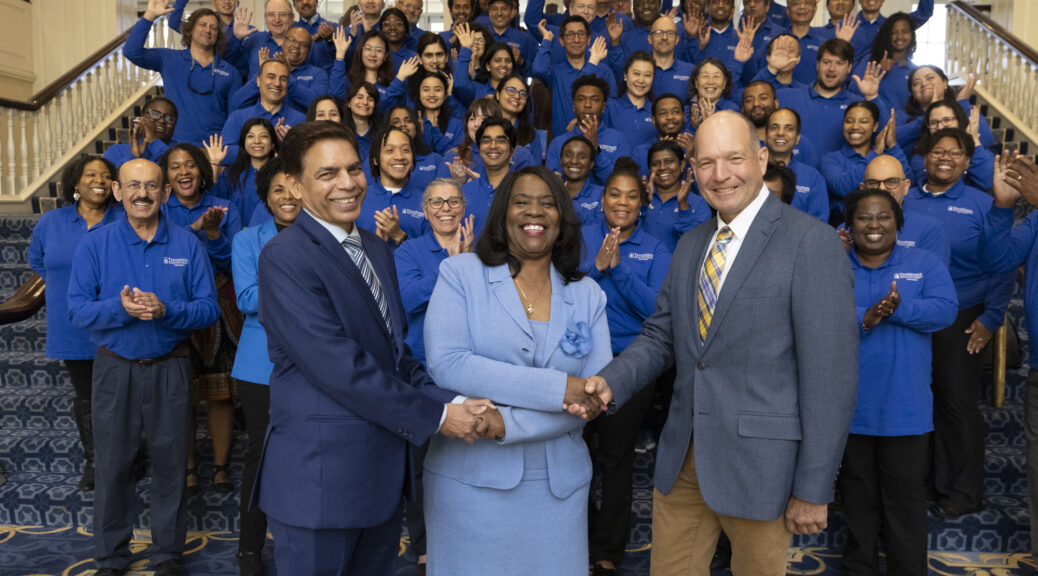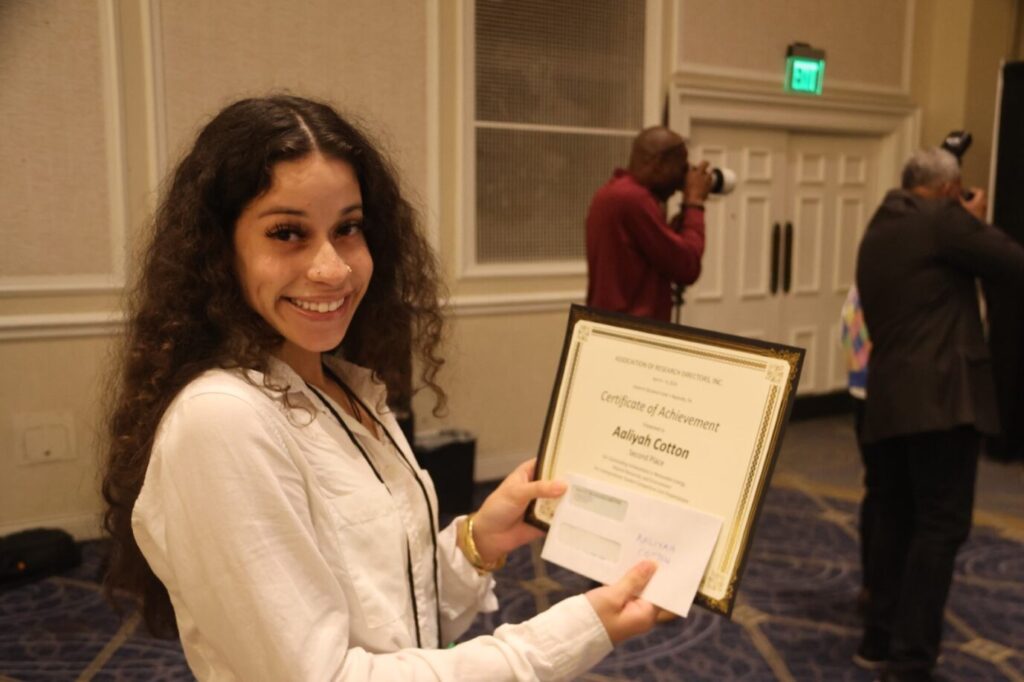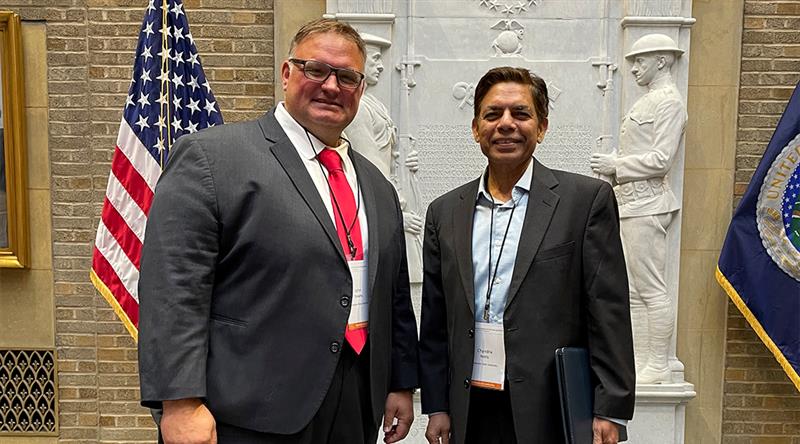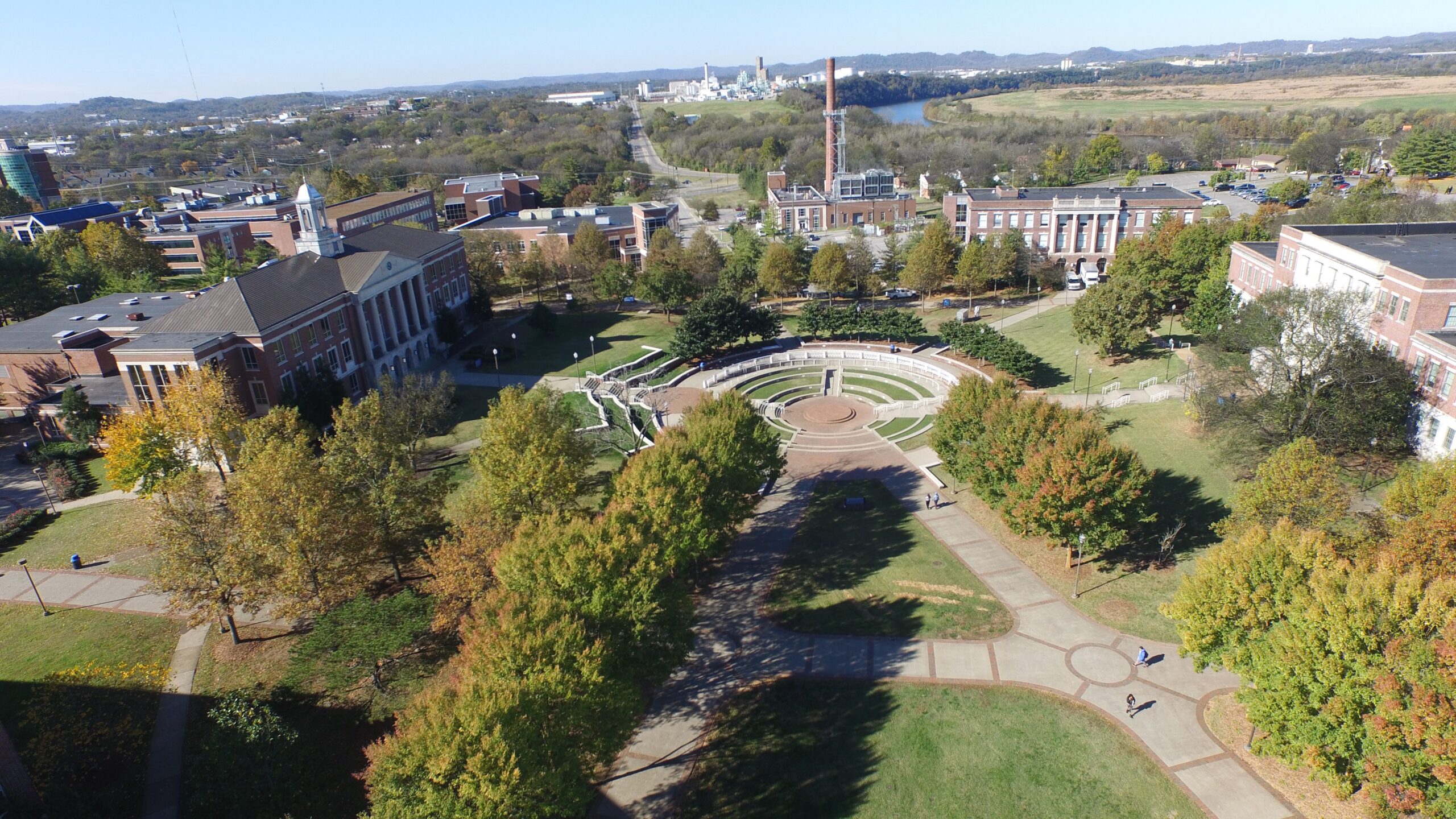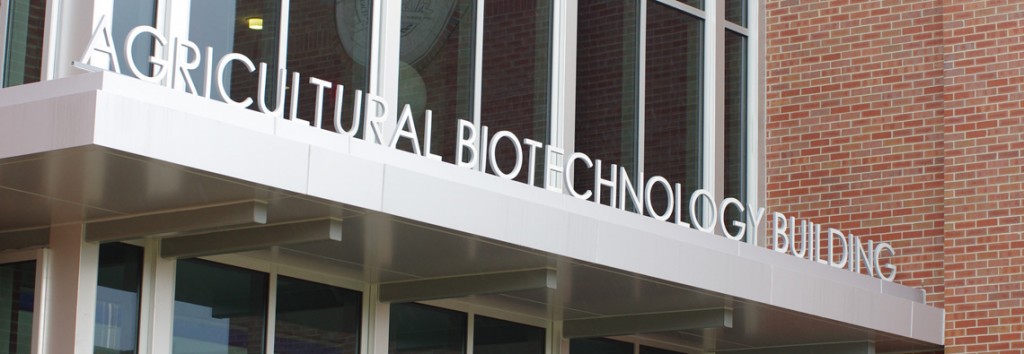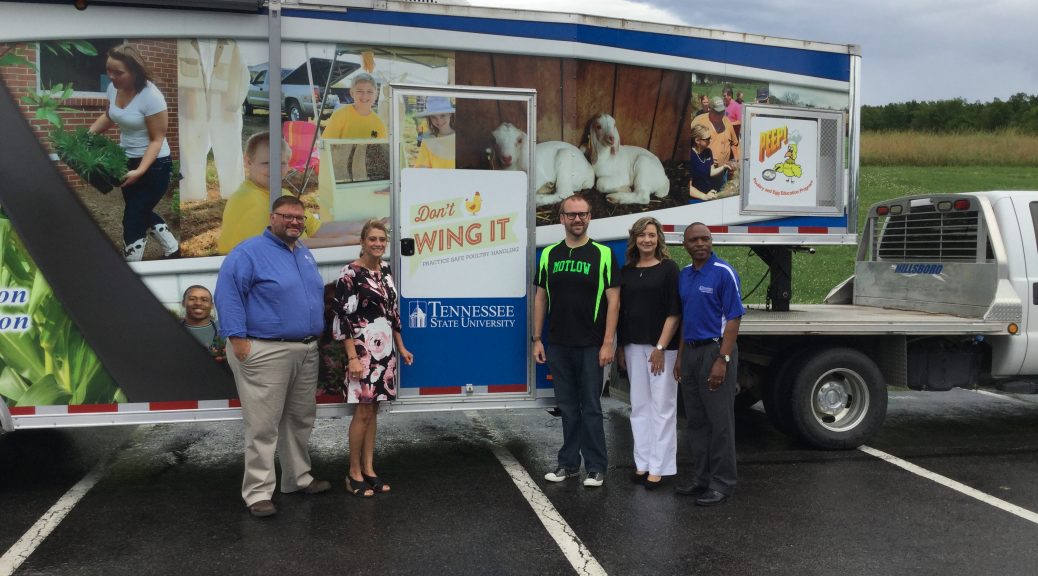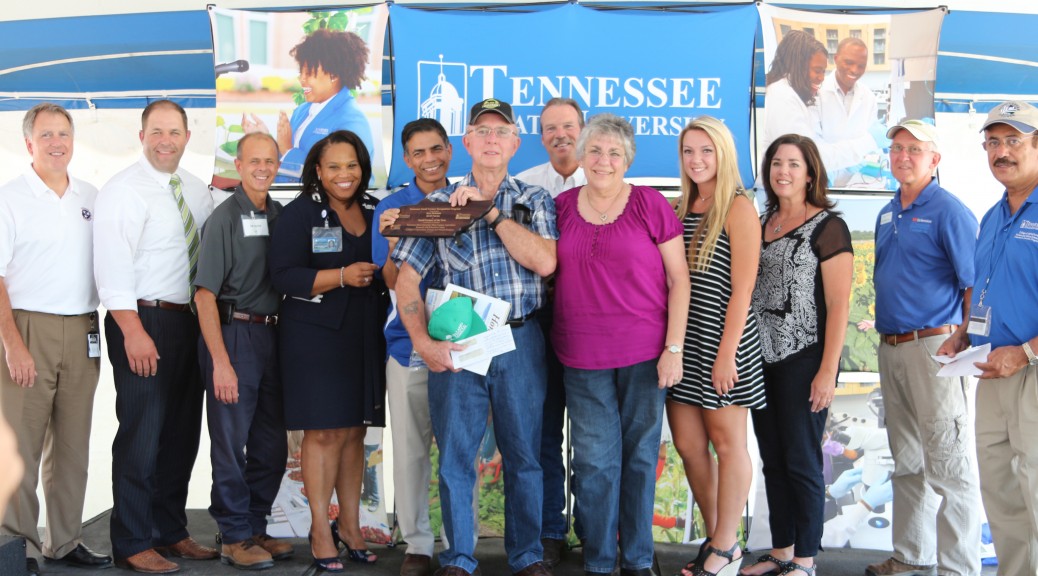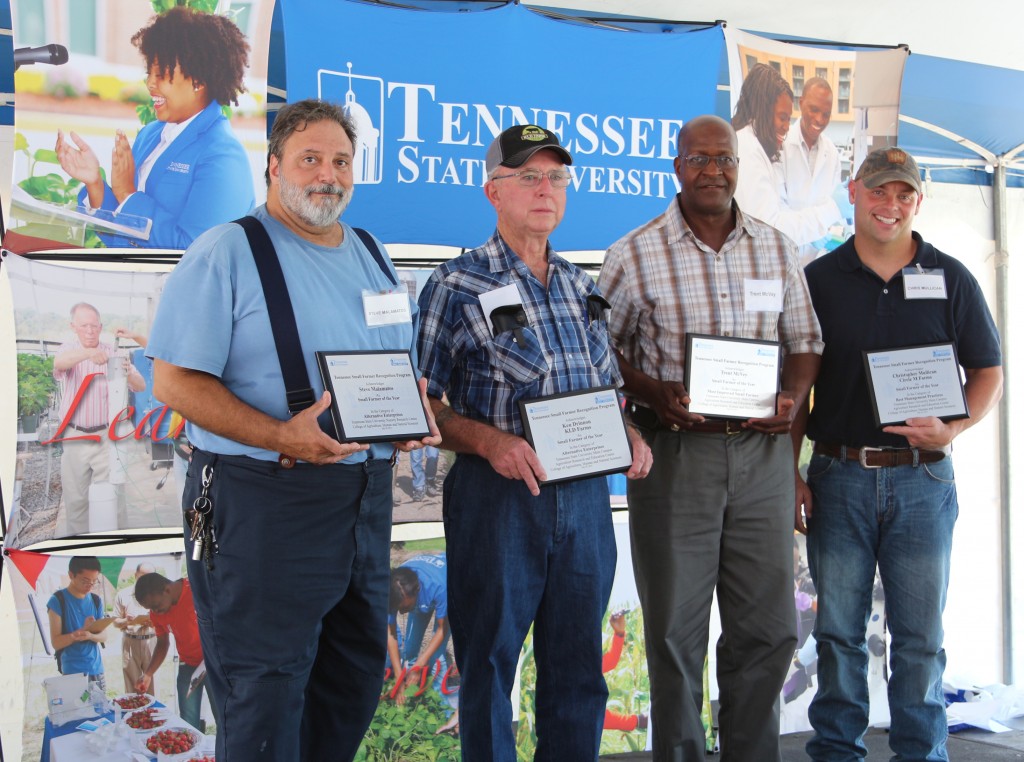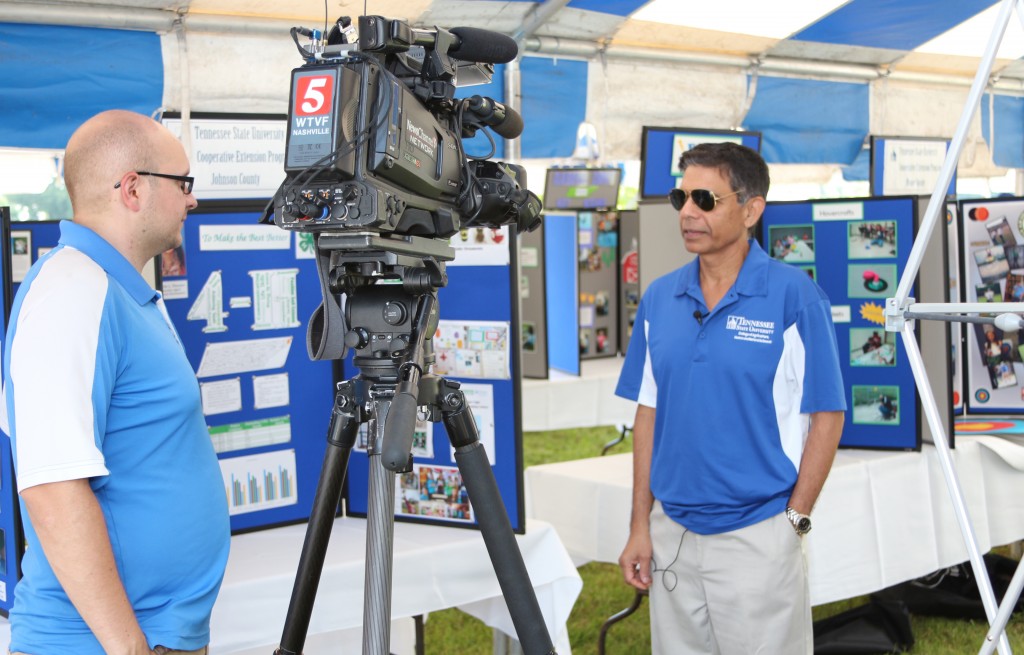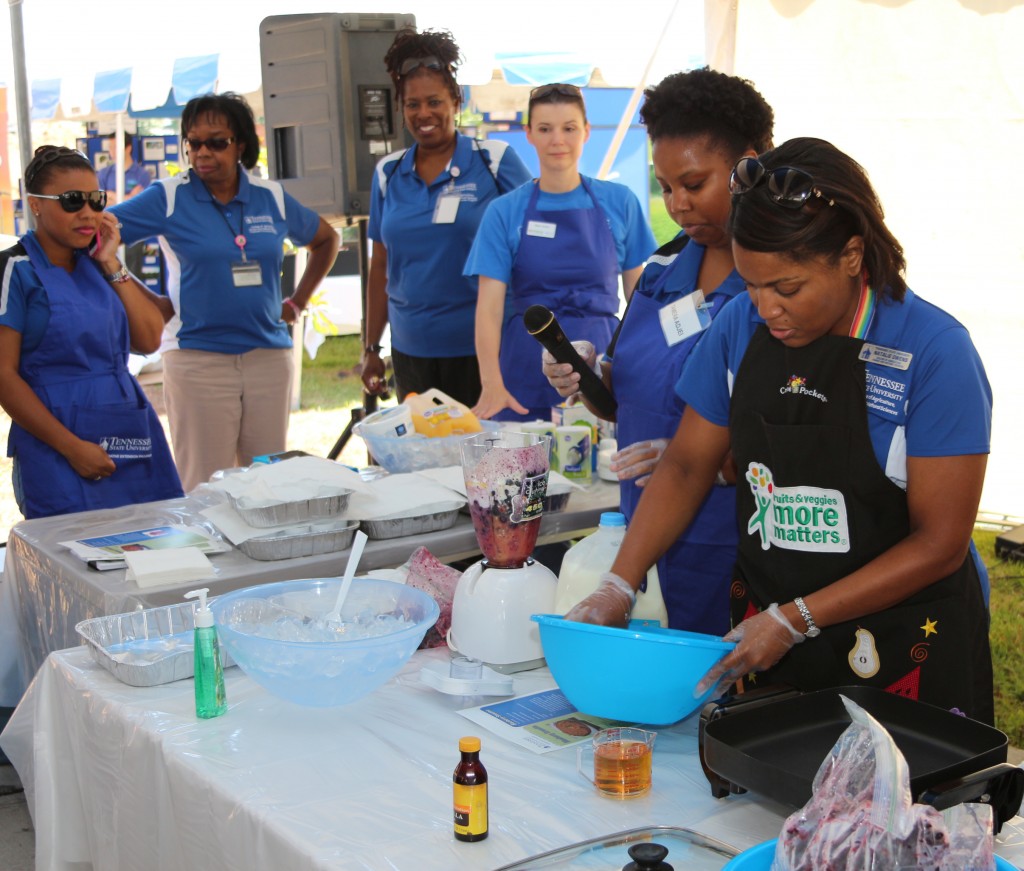By Charlie Morrison
NASHVILLE, Tenn. (TSU News Service) – The Tennessee State University College of Agriculture served as the host for the 21st Association of 1890 Research Directors Biennial Research Symposium (ARD), held in April at the Gaylord Opryland Convention Center in Nashville. As the immediate past Chair and steering committee member of the symposium, the College of Agriculture Dean, Dr. Chandra Reddy, was instrumental in getting the event to be held here in Nashville, and participants did not disappoint. The event was by all accounts the biggest, best-attended symposium in the organization’s nearly 50-year history.
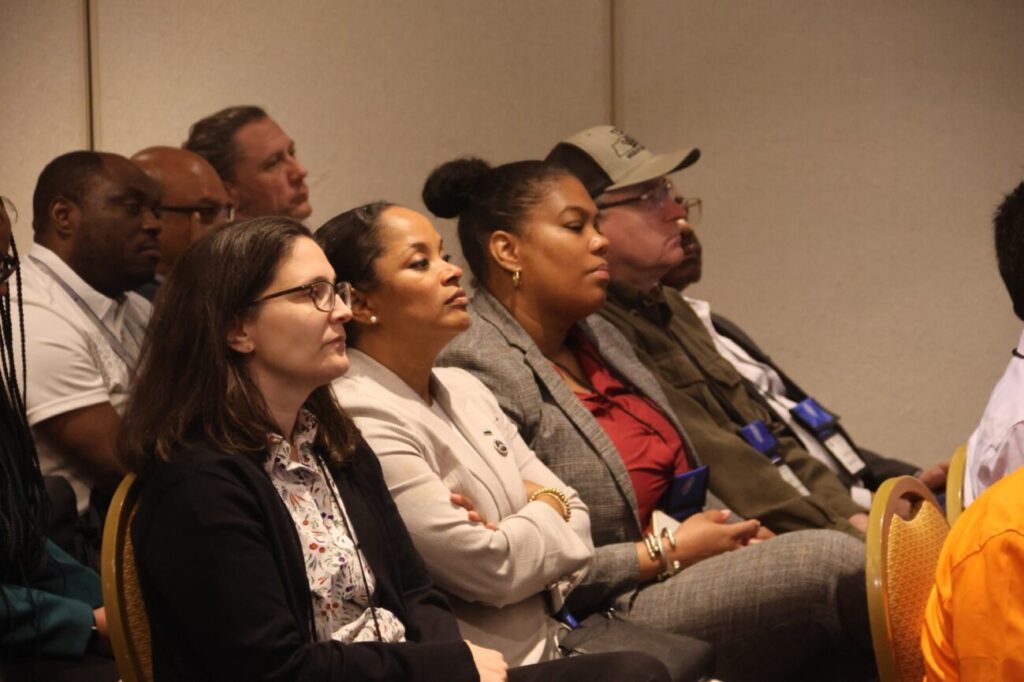
More than 1,500 faculty researchers, college administrators, students, and staff from each of the 19 1890 land-grant HBCUs attended this year’s symposium. The premier event brought together agriculture-focused researchers from across the 1890 land-grant university system. In addition to showcasing the talents and achievements of the 1890 community, the symposium offered attendees interactive opportunities to share knowledge and build networks for expanded research collaborations.
Dean Chandra Reddy was buoyant about the College’s performance at the ARD. For Dr. Reddy, a successful showing at the symposium took everyone from the College’s participation, involvement, and engagement. “I am extremely happy that the event went so well. Our students and faculty succeeded in all the sessions and competitions, with outstanding preparation and engagement,” said Dr. Reddy. “So many of the attendees visited the College and were thoroughly impressed with our research labs and the cutting-edge research being conducted by our faculty, graduate students, and even undergraduate students.” TSU Agriculture students, faculty, and post-doctoral students contributed nearly 130 research posters and 300 oral research presentations that were put forth at the symposium, many of which received awards and cash prizes due to their research.

A large contingent of the TSU family, including President Glenda Glover, took part in the conference, presenting research, judging competitions, and fostering networking connections. “TSU recognizes the importance of agriculture, I recognize the importance of agriculture having grown up on a farm in Memphis, so I know and love the industry,” said Dr. Glover as she addressed the conference during its opening session. “Here we’re doing more to move agriculture forward on our campus in Nashville. Thank you for being here today and for such a meaningful engagement. Continue to perpetuate the legacy of research excellence.”
The theme of this year’s symposium was “Climate, Health, and Cultivating the Next Generation of Agricultural Leaders: Creating Solutions in Food, Agriculture, and Natural Resources.” TSU students had the opportunity to present their research both orally and through poster competitions. The students networked with like-minded scientists from across the 1890 community and engaged in important topics such as climate science research, navigating grantsmanship, and outside funding activities, and presenting their research effectively.
During the four-day symposium, three TSU College of Agriculture students had the opportunity to address a venue in Opry that seated more than 1,500 participants. The students were TSU junior Kennedy Bentley, along with seniors Dominque Smith and Kerrington Howard. “It felt great to address the symposium because …. I wanted to show everyone that we’re doing something here (at TSUAg), I wanted to show the symposium what they were investing in,” said Howard, a dean’s list scholar. “And they need to see that we’re here doing the work so they keep supporting us.”
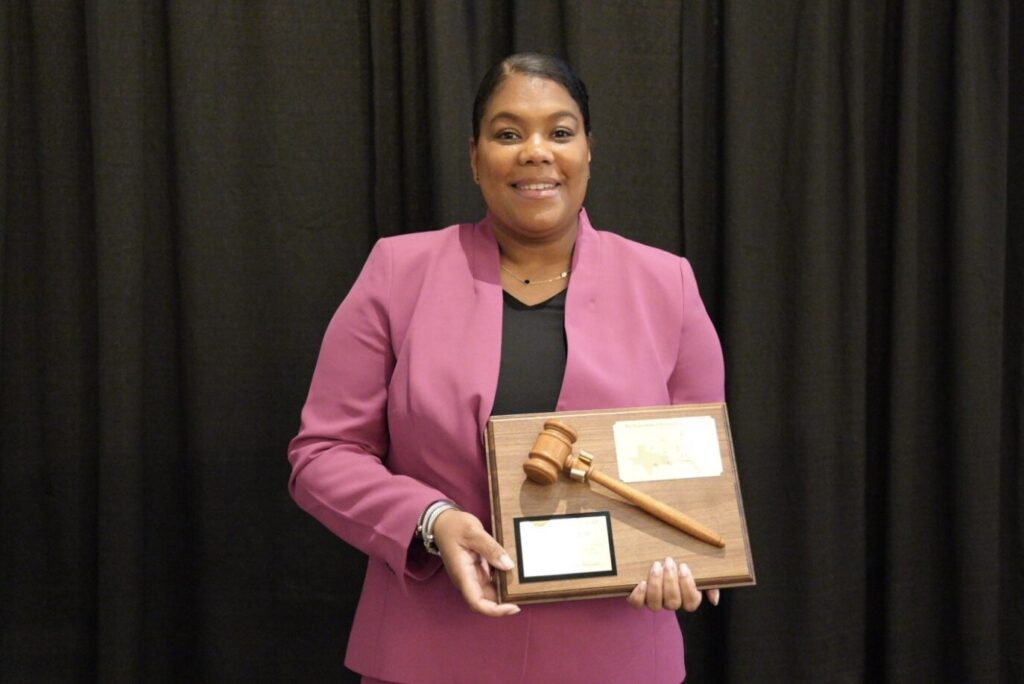
During the event, Agriculture Professor and Associate Dean of Academics and Land-grant Programs Dr. De’Etra Young won an inaugural McKinley Mayes Mentoring Award. The award was created to recognize an administrator who has demonstrated an outstanding commitment to mentoring both students and early faculty members.
At the symposium, graduate students showcased their research prowess, particularly excelling in oral presentations. The College of Agriculture dominated the food safety, nutrition, and health category, with Amritpal Singh securing first place, followed by Aakash Sharma in second, and Pallavi Rathore in third. In other categories, such as plant health and production, Divya Jain claimed the top spot, while Sudip Poudel secured second. Additionally, Jazmine Norwood stood out in the family, youth, community, and economic development category, winning the competitive poster presentation.
Aaliyah Cotton represented the undergraduate student body with distinction, earning second place for her oral presentation on renewable energy, natural resources, and the environment. Overall, the College of Agriculture students showcased exceptional talent and dedication across various fields of study at the symposium.
“It was a prideful moment for my team and I to have our peer institutions treating us as a model for their own institutions and leaders,” Dr. Reddy said. “And we heard that a lot at this year’s symposium.”
To learn more about the College of Agriculture, visit https://www.tnstate.edu/agriculture/.
